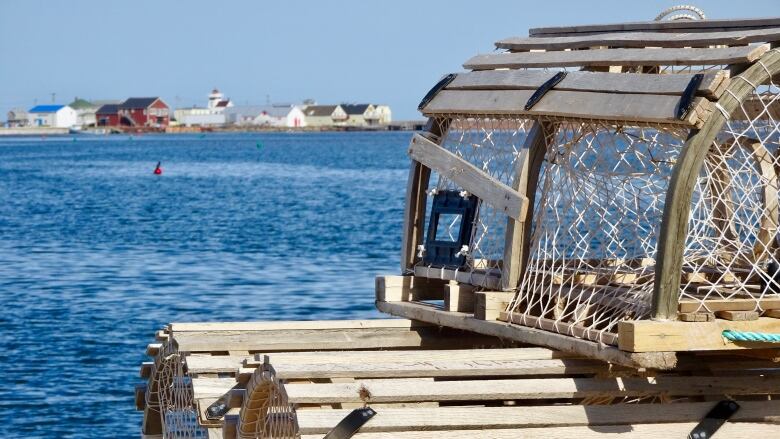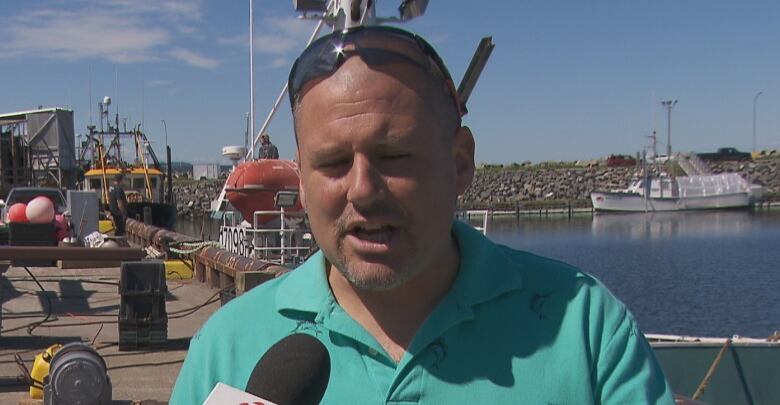Someone is stealing lobsters from traps off Sainte-Anne-des-Monts in the Gasp
Thefts mean fisheries experts can't judge whether lobster fishing in the area is sustainable

A pilot project to determine the viability of lobster fishing near Sainte-Anne-des-Monts, offthe north coast of the Gasp Peninsula, is being bedeviled by lobster thieves.
Four fishing boats two belonging to the MaleciteNation and two to non-Indigenous fishermen have been authorized by Fisheries and Oceans Canada to catch lobsters in the area this season.
It's part of an "exhaustive scientific process" Fisheries and Oceans is carrying out to determine whether lobster fishing in the area is sustainable, said Guy-Pascal Weiner, commercial fisheries co-ordinatorfor the Malacitesin Cacouna, nearRivire-du-Loup.

Lobster stocks are thought to be highin this area, butWeinersaid theMaleciteNation's fishing crewshave noticed a lower than expected catch throughout the season.
And it does not appear to be simply a matter of bad luck.
"Why is this one open?" Weiner says the fishermen have been asking when theychecktheir traps."How come the door [of the trap]is not tightened?"
"It's all things that led us to believe that lobster traps were hauled."
Matters became more dramaticas the 10-week lobster season wore on, he said.
Now, "one trap is full, another trap is empty,"WeinertoldCBC.
The thieves have even resorted tohauling entire lobster posts ashore and emptying them, he said.

The lobster fishing area being tested is close to the shore, with buoys indicating where the lobster traps have been set.
Being close to shore means the area is not subject to the same restrictions as thosefaced by other Gasp lobster fishermen, whose fishing season has been cut short because theiractivities were deemed a possible threat to right whales travelling through the area.
Proximity to the shore, though, makes it easier for anyone with a boat to approach the buoys and haul in the lobster traps.
Data lost in thefts
Fisheries and Oceans and the Quebec provincial police are investigating, but there are only two weeks left in the lobster fishing season in the area.
Fewer lobsters brought to market this year means lower revenues for the fishermen, as well as for processing plant workers and truckers, and it could reduce everyone'sEmployment Insurance benefits,Weinersaid.
The thefts could also affect the findings of the pilot project.
Weinersaid experts look at the number of lobsters caught, the breakdown betweenmales and females, the percentage of juveniles, and the size of the lobsters, measured by thelength of their thorax.
"When [thieves] steal the lobsters like that, it's important scientific data that slips through our fingers," he said.
The success of the pilot project is critical to the MaleciteNation's development of commercial fishing activities.
Like other First Nations along Canada's coasts, they've been granted commercial licencesin the wake of Supreme Court rulings affirming Aboriginal fishing rights.For now, Weiner said, the Malecites are hiring non-Indigenous fishermen, as they haven't yet developed the expertise to crew the commercial fishing boats themselves.
With files from Julia Page and Radio-Canada's Michel-Flix Tremblay












_(720p).jpg)


 OFFICIAL HD MUSIC VIDEO.jpg)
.jpg)



























































































